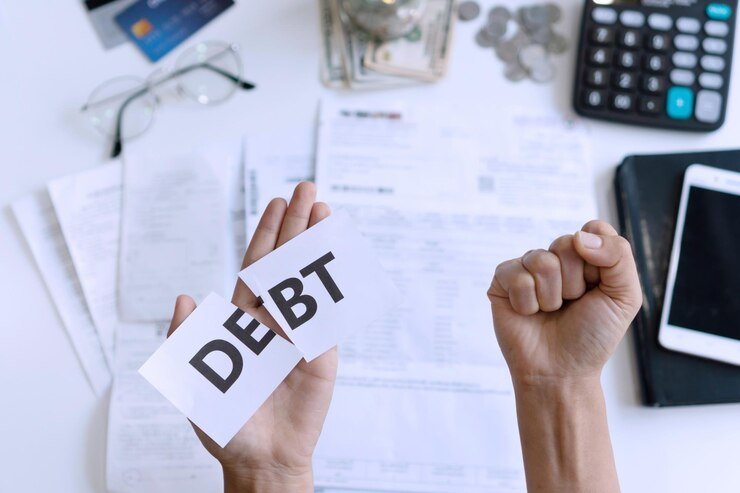This article on DWP Debt Management will give you the information you need to start dealing with your debt from the beginning so that it doesn’t get out of hand and cost you more than necessary in the long run.
If you find yourself owing money to the Department for Work and Pensions (DWP), you’re not alone. DWP debt happens when the DWP believes you’ve been overpaid for benefits, Tax Credits, or other payments and you have to repay it—sometimes with interest and penalties on top of what you originally received from the DWP itself. If this has happened to you, don’t panic; just take one step at a time, because resolving these kinds of debts can be difficult and complex.
If you’ve been contacted by the Department for Work and Pensions (DWP) Debt Management department, it’s important to know what you’re facing before you respond. These debt collectors are backed by the full weight of the British government, and if they decide to take you to court, it can be an expensive process that could take months or even years to resolve.
What is DWP Debt?
DWP debts happen when the DWP believes you’ve been overpaid for benefits, Tax Credits, or other payments. In most cases, these debts are the result of an error on the DWP’s part. However, there are some instances where the debt is legitimate. For example, if you’ve been overpaid for benefits because you failed to report a change in your circumstances, you may be required to repay the money.
What is DWP Debt Management?
DWP Debt Management is a way for the Department for Work and Pensions to get the money that they believe you owe them. Overpayments for benefits, tax credits, and other payments can result in this problem, as mentioned above. If you’re contacted by DWP Debt Management, it’s important not to let the debt overwhelm you. Here are some tips on how to deal with Debt Management DWP.
What Happens If I Can’t Pay?
With the cost of living crisis in the UK looming over, it can be found that some people find it difficult to repay their DWP debts. If you’re struggling to pay your DWP debt, the first thing you should do is contact them to discuss your options.
Depending on your circumstances, they may be able to offer you a repayment plan or extend the time you have to pay or help you apply for hardship payments.
If you still can’t afford to pay, they may ask you to sell any assets you have or use money from your income or savings. In extreme cases, they may take legal action against you, which could result in a court order for the debt to be paid.
If you don’t contact them or make any effort to repay the debt, they may send bailiffs to your home to collect the money. This can be a stressful and worrying experience, so it’s best to try and resolve the debt as soon as possible.
How Does The DWP Collect My Debt?
The DWP has a few different methods they can use to collect on debts that are owed to them. The first, and most common method is wage garnishment. This is when the DWP contacts your employer and requests that a certain amount of money is taken out of your paycheck each week and sent to them.
Another method the DWP can use is to freeze your bank account. This means that you will not be able to access any of the money in your account until the debt is paid off. Lastly, the DWP can also put a lien on your property. This means that if you own a home or other property, the DWP can request that it be sold in order to pay off the debt.
What Happens When I Contact The DWP?
The DWP will send you a letter explaining how much you owe and why. They’ll also include a repayment plan. If you can’t afford the repayment plan, let them know and they may be able to adjust it. You can also ask for more time to pay off the debt.
What if I ignore the letter?
If you ignore the letter, the DWP may take action to recover the money you owe. This could include taking money from your benefits or asking your employer to deduct money from your wages. The DWP can also pass your debt on to a debt collection agency.
Unpaid DWP Debt and Bankruptcy
If you’re struggling to repay your DWP debt, you might be considering bankruptcy. However, it’s important to know that DWP debt is not automatically wiped out by bankruptcy. You’ll still be responsible for repaying any benefits you were overpaid, even if you declare bankruptcy. The good news is that the DWP may be willing to work with you to set up a repayment plan that fits your budget.
How Can I Avoid Future DWP Debts?
There are a few things you can do to make sure you don’t get into debt with the DWP. First, keep detailed records of your earnings and benefits. That way, if there is ever a question about how much you should have been paid, you can refer back to your records.
Second, report any changes in your circumstances to the DWP as soon as they happen. This includes things like changes in your income, address, or family situation. If you’re not sure whether you owe money to the DWP, you can call their Debt Management helpline for advice.
What If I Am Having Difficulty Managing My DWP Debt?
If you are struggling to repay your DWP debt, the first thing you should do is contact your Debt Management Officer. They will work with you to come up with a repayment plan. If you are still having difficulty, there are other options available to you. You can apply for a hardship payment, which will lower your monthly payments.
If you are on a low income, you may be eligible for an Income Based Repayment Plan. This will lower your payments based on your income and family size. There are also other options available, so be sure to speak with your Debt Management Officer to find the best option for you.
Alternative Repayment Plans from the DWP
If you’re struggling to repay your DWP debt, you may be able to set up an alternative repayment plan. This could involve making smaller payments over a longer period of time, or in some cases, having your debt written off entirely. There are a few different options available, so it’s important to contact the DWP and explain your situation. They’ll be able to advise you on the best course of action.
Conclusion
Now you are well equipped to deal with DWP Debts better in case you are faced with them.



